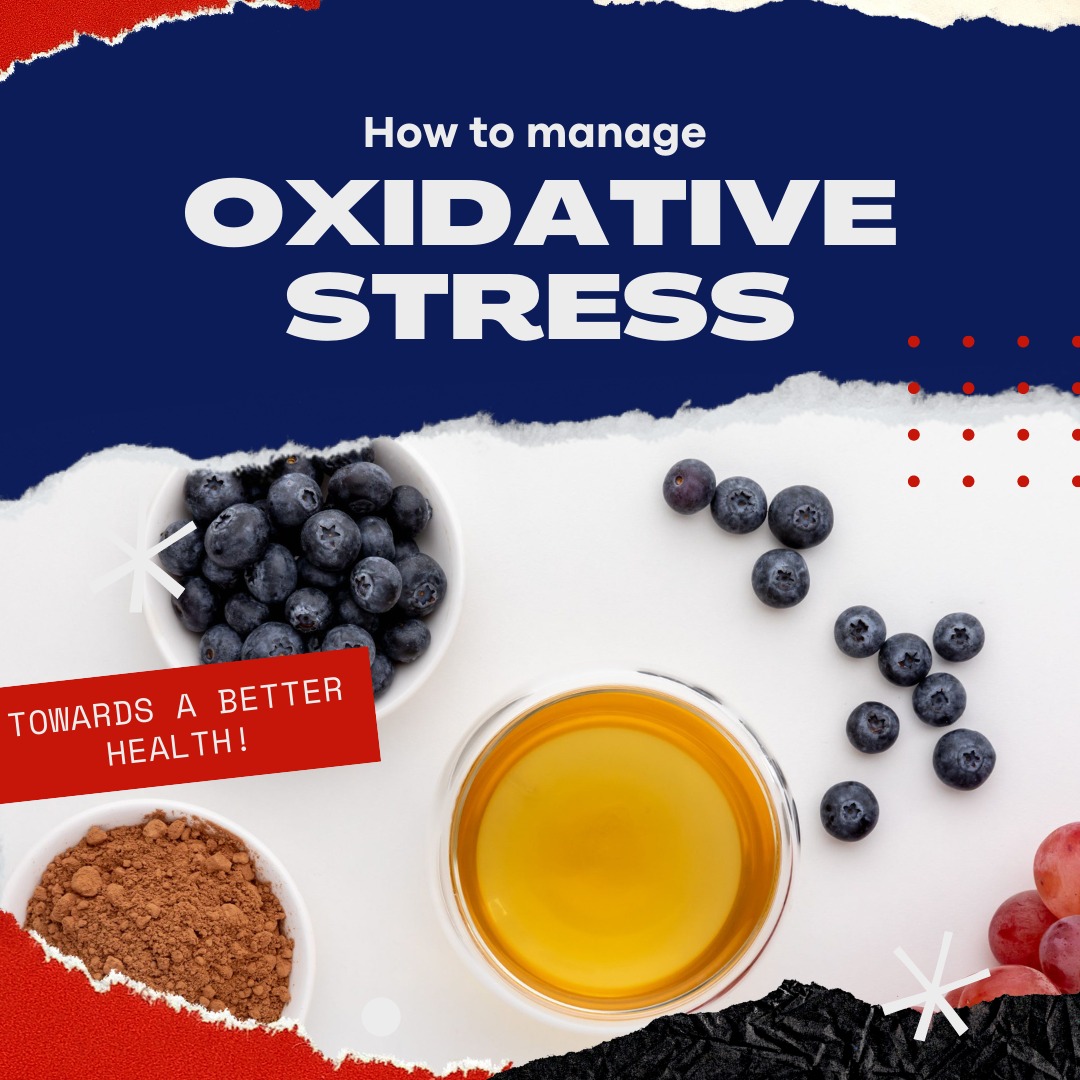An imbalance between free radicals and antioxidants in your body causes oxidative stress. Oxygen-containing molecules with an uneven number of electrons are known as free radicals. Because of the odd number, they can easily react with other molecules. Because free radicals react so quickly with other molecules, they can create enormous chain chemical reactions in your body. Oxidation is the term for these kinds of processes. They have the potential to be beneficial or detrimental.
What can oxidative stress do to your body?
Oxidation is a natural and important mechanism in the human body. Oxidative stress, on the other hand, occurs when free radical activity and antioxidant activity are out of equilibrium. Free radicals, when operating properly, can aid in the battle against infections. Infections are caused by pathogens.
When there are more free radicals present than antioxidants can keep in check, the free radicals might start causing harm to your body's fatty tissue, DNA, and proteins. Damage to proteins, lipids, and DNA, which make up a big part of your body, can lead to a wide range of disorders over time. These are some of them:
Hardening of the blood vessels , cancer ,inflammatory conditions, high blood pressure ( hypertension )
heart disease, neurodegenerative diseases, such as Parkinson’s and Alzheimer’s
Free radicals are produced naturally in everyone's body as a result of actions such as exercise or inflammation. This is normal and part of the body's complex mechanism of self-protection.
Free radicals may also be present in the environment. Among the sources are: insecticides and cleansers, to name a few, smoke from cigarettes and air and water pollution.
Is there a way to manage oxidative stress and preventing it?
It's hard to stay free of free radicals and oxidative stress entirely. There are, however, ways to reduce the consequences of oxidative stress on your body. The most important thing you can do is boost your antioxidant levels while lowering your free radical production.
Making sure you're getting enough antioxidants in your diet is one way to avoid oxidative stress. The best method to provide your body with what it needs to create antioxidants is to eat five servings of a variety of fruits and vegetables per day. Fruits and vegetables include the following:
Berries and cherries all citrus fruits, dark leafy greens, carrots, olives
Make sure to include the following dietary antioxidant sources:
Nuts, vitamin E, vitamin C, cinnamon, Bananas Natural turmeric, melatonin, onion and garlic, Safe Catch Fish.
Oxidative stress can also be prevented or reduced by making other healthy lifestyle choices. Here are some lifestyle options to consider:
1- Quit Smoking. Avoid exposure to secondhand smoke as well.
2- A regular, moderate exercise routine. To boost your antioxidant levels and decrease damage caused by oxidative stress. Plan a regular exercise pattern to lower effects of aging, and decrease the risk of cancer and disease.
3- Use caution when using cleaning products, avoiding redundant radiation exposure, and being aware of other sources of chemical exposure, such as pesticides used on food.
4- Try to pick your organic fruits and vegetables from a trusted Organic Source, making sure you choose a free range selection of eggs to avoid unnecessary exposures.
5- Decrease your alcohol intake.
6- Get plenty of sleep. Ample sleep is very important for maintaining balance in all of your body systems. Brain function, hormone production, antioxidant and free radical balance, and a host of other things are impacted by sleep.
7- Relax and Breath fresh air by taking your weekends away from city chaotic life. Choose rural places ( If you’re living or visiting Jordan, Dead Sea and Wadi Rum has the best oxygen content and with the most purest particles away from city air pollutions )
8- Avoid overeating. Studies have shown that overeating and constant eating keep your body in a state of oxidative stress more often than if you eat at appropriately spaced intervals, and eat small or moderate portions.
